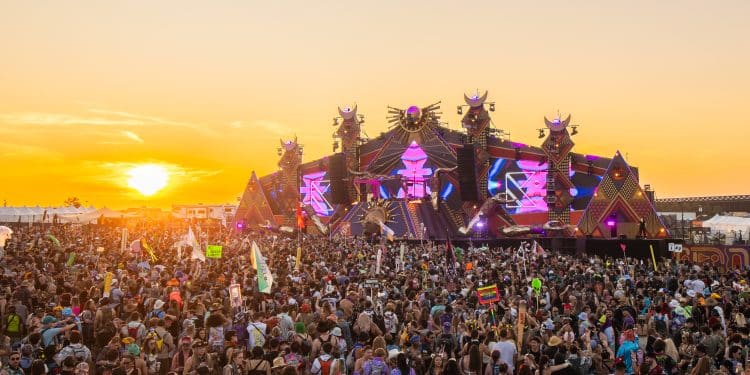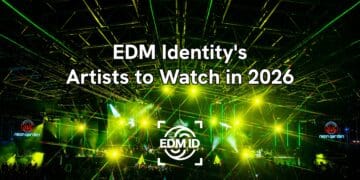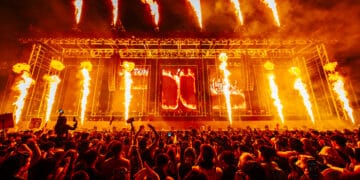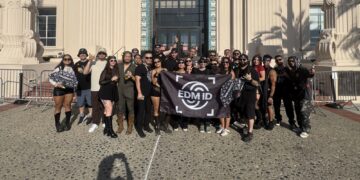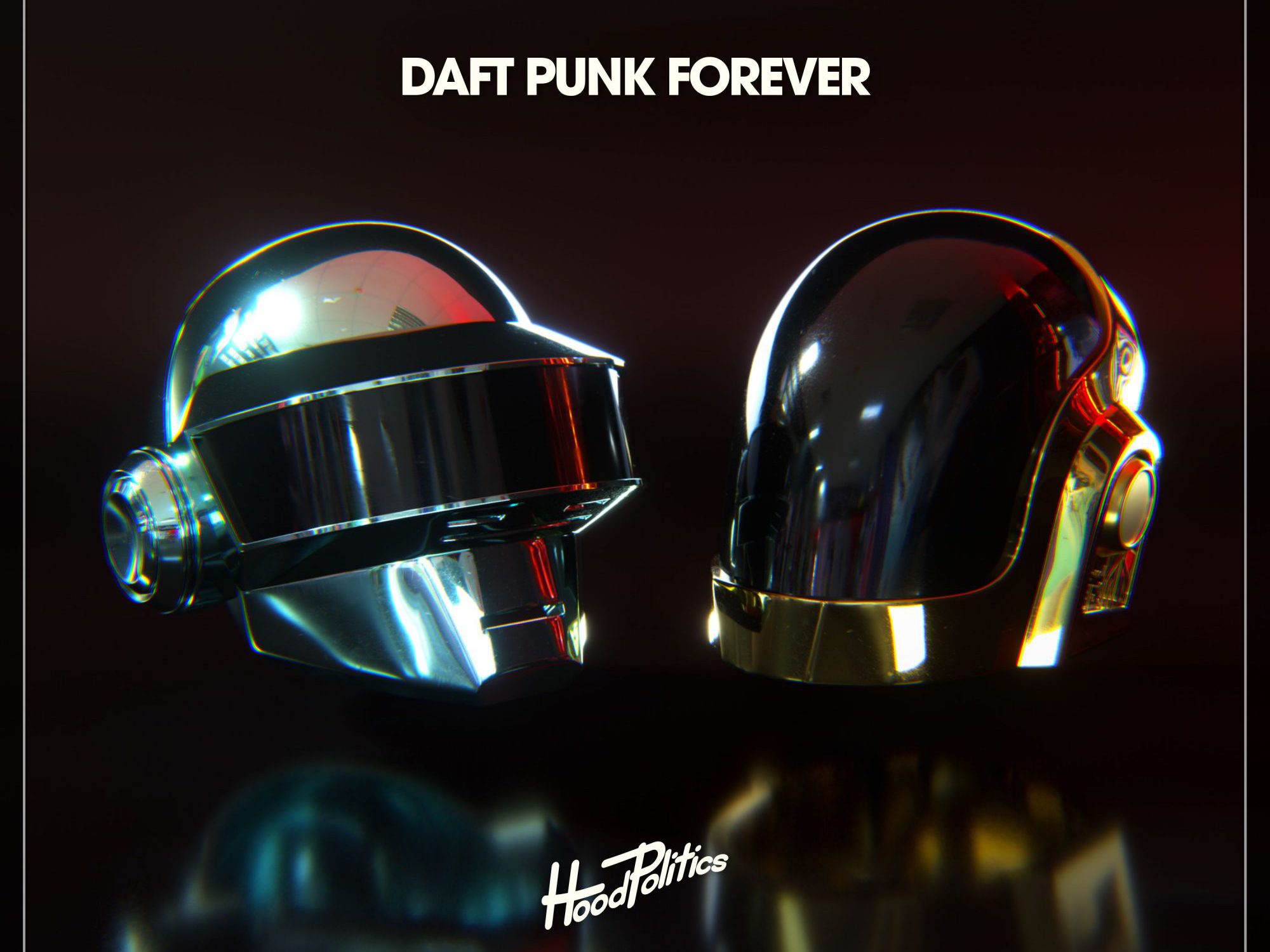As the warmer weather takes hold of Southern California, Rinzen swung by to chat about his recent releases and what’s to come this year.
When you take a look at the vast landscape of the dance music scene there are a number of different roles that artists fall into. Some dedicate their careers to producing club-ready bangers, others construct immersive experiences for their fans to explore, but they all are brought together by a common love for electronic beats. Over the course of the past few years, one of the artists who has consistently proven that he has immense talent both in the studio and behind the decks is Rinzen.
Captivating listeners early on with the world he created back on Forbidden City, Exoplanet, and Prologue, Rinzen has gone on to explore other reaches of the electronic music realm on his journey as well. As he’s grown, he’s expanded beyond his initial home at mau5trap to explore darker sounds on labels like Desert Hearts Black and Yoshitoshi, while more recently finding the light on This Never Happened.
During this time Rinzen also opened up to his followers through the Story Of Rinzen mixtape series that showcases his influences that range from science fiction films to nature. But after releasing “‘90s Child” on We Are Friends Vol. 10 and dropping “Some Good Here” on This Never Happened, we wanted to dive even deeper into the mind of this emerging artist in the scene. Luckily, he had some time to chat and we jumped at the opportunity to embark on an expedition, so listen to his latest work and read on for this in-depth conversation!
Listen to Rinzen’s “’90s Child” on YouTube:
Hey Rinzen, thanks so much for taking the time to chat with us today. You know, it’s been a few years since last time we spoke so how have you been lately?
Yeah, appreciate you having me for this interview. Overall, I’ve been good — as well as one can be doing in these times I’d say. I think my priority for the past year and a half has really just been finding that balance between creating art, taking care of my physical health and mental health, and finding joy in my daily routine.
Definitely, I feel like that’s been kind of a struggle across the board, to find some semblance of normalcy during the pandemic. What were some of the things that you found yourself doing last year that helped you stay centered?
Yeah, I’m fortunate to have a studio space that’s right in Venice Beach. It’s pretty close to the ocean. Getting outside of the studio, skateboarding, and walking down by the beach has always been the most important thing for my daily mental health.
I’ve really come to value finding inspiration outside of the studio, and making sure that I’m not just spending seven days a week staring at my computer and working on music. As fun and engaging as that is for me, I realized that my inspiration will quickly dry up if I’m not doing things that actively refill it.
It’s good that you’re able to kind of find your center through your surroundings.
Yeah, and a lot of my inspiration was coming from performing shows, getting feedback from crowds, and just that energy of a live concert. The absence of that also really changed the music I was writing. It was a lot harder to inhabit that headspace of club music or even of techno or just harder genres of dance music because I wasn’t having those experiences as much. So I found myself writing much more melodic music and slower tempos. Stuff that wouldn’t necessarily fit in a club but is nice to listen to and have on in the background
Yeah, I kind of noticed that with “Some Good Here.” That was such an awesome tune and it was a little surprising that it came out on This Never Happened. But then I remembered your remix of “Visions” and that you played the same stage at Electric Forest.
I was starting to put myself in this box of darker ethereal techno, which realistically is probably my main love in terms of house and techno. But the fact is, I write all types of house and techno (and electronic music in general). And sometimes that comes out as something like “Some Good Here” where it’s more emotional and melodic and deep, sometimes it comes out sounding like “Resonate.” Ultimately, I want to have the freedom to release everything I create, because it’s all from me and all still within the Rinzen world.
So in this case, I liked having the opportunity to work with Lane 8. His label ended up being the perfect home for it. The response from his fanbase and from him was probably the best reaction I’ve ever had to an original song that I’ve put out.
Wow, that’s awesome. The This Never Happened community and really the whole Anjunafamily vibe is so welcoming and loving. I do really feel like that’s like one of the communities that’s really held true throughout the pandemic as well.
Yeah, I kind of love all these different sub communities within our scene. The Anjunafamily is one instance where it’s this group of some of the most loving people in dance music. It’s so positive and so supportive. I’ve experienced just a taste of that from releasing with This Never Happened.
Another one that comes to mind is Desert Hearts. That’s been the other big community that I’ve really ingrained myself in over the past year. I’ve noticed the same thing in this community of people supporting each other and checking in on each other. In many ways, I’m still kind of finding which community works best for me and my music. And maybe the answer isn’t just one.
Yeah, it’s kind of good to be flexible, too, right? Like, you don’t want to put all your eggs in one basket. You’re also part of mau5trap community, too. Those are all, realistically, three of the biggest community-driven groups that are there out there.
In general, I’m drawn to labels that have a community around them. I think what makes it exciting to work with a different imprint is when they’re not just releasing your music, they’re integrating you into their community. You’re playing shows with them, you’re making mixes for them, you’re doing their radio broadcasts, and you’re interacting with their fans on a level beyond just putting out a song.
All those communities seem to be very open to the world building that you’ve created too. With mau5trap, maybe a little bit more, perhaps, than the others. But I feel like that’s something that at least is stuck out as very central to your sound.
Yeah, I’ve always tried to think of my music as not just purely audio, but as something conceptual as well. All my favorite art has that layer where you experience the art, and then you read about the artist’s intention behind it. And all these little details add up to give the song or art piece more dimensions and more life. It makes it feel like it’s existing in its own world.
That’s always been a really inspiring thing to me, especially when I started out with mau5trap. Those first EPs, they were so concept-driven. And then over time, maybe I’ve drifted a little bit, because you end up writing club music, or music that’s more of a DJ tool. I’m always thinking about those concepts though — about how I can evolve the music into something bigger or more imaginative.
Yeah, it can be kind of tricky. I feel like there’s always this idealistic sense of wanting to create art, but that doesn’t necessarily always transition to clubs. So it’s good to be at least dabbling in both sides of it and making sure that you don’t have too much on one side, you know?
Yeah, exactly. I’m always trying to find that middle ground of creating something that can stand alone as a beautiful piece of artwork, but also something that has some functional value where it can be played in a club or concert hall and sound amazing in that environment.
In many ways, though, I’m sometimes jealous of the artists who just commit to one direction, commit to one label, and they just do that thing for eternity. I don’t know if I could ever do that, because I’m constantly changing what I like and the direction I want to go. But in many ways, I envy that kind of simplistic approach.
The downside of that approach to making the same style of music and becoming renowned for it is that sound is so ingrained with that name.
That’s true. And that’s always my greatest fear. My greatest fear is being pigeon-holed. I never want to just be one thing and to have people only expect that one thing for me. So I think from the outset, I’ve always tried to be changing and evolving while still clearly having this Rinzen sound.
You also sort of expand on Rinzen as a concept too through the Story of Rinzen. So even though your sound might deviate one way or another, it all comes back to that series that you’ve been doing. So do you have any plans for another chapter of the story this year?
Yeah, I’m always thinking about the next chapters, and for Chapter Three, I already have a bunch of ideas. The thing is with these, it’s not like crafting a normal mixtape. I really try and put as much of myself into these as possible. Sometimes that process takes three to six months of my life, because I’m watching different films, listening to interviews, and constantly sampling and recording these bits and creating this catalogue of samples to pull from. Then, at the same time, I’m also finding music.
At the end of that process, I take all that together and create these chapters. So they’re always actively being built in my mind. But it’s just a matter of when I have all the right material to sit down and do it, as well as the window of time to make it. I’ll definitely be working on and putting out the next one in the next one to two months.
Oh, awesome. That’s huge. Are there any teasers you can share of what might be in there?
I pull from everything I’ve been consuming. So recently, it’s been sci-fi shows like Raised By Wolves and Devs. And I’ve been listening to a bunch of interviews of Bjork and Jean-Michel Basquiat. The mixes are a reflection of how I actually spend my time. I think that’s what’s cool about it, it’s me putting my actual personality and interests outside of music into this auditory experience.
That’s actually something I noticed – people always touch on their influences, but they don’t typically talk about how it directly affects their work. I also see people asking what studio setups are like, but I’m more interested in how artists are consuming other pieces of media. How do you listen to music?
You know what’s so interesting is, since I’ve undertaken this artist’s journey, I spend most of my days and most of the hours of my days working on music. So I don’t end up listening to that much music outside of those hours. For one, to give myself an ear break, but two, it’s almost just like a palate cleanser, like I need silence very often.
But with that said, I am actively consuming films and a lot of science fiction type of TV shows. So much of my inspiration these days is coming from film.
It’s interesting what you said, that we don’t talk as much about where we’re pulling our influences from outside of just music. I’ve also become super interested in the fine art world and studying a lot of great artists and painters, like Jackson Pollock or Jean-Michel Basquiat. These artists who were at the center points of certain revolutions within art, where the whole styles shifted and changed. I just want to know what was going on inside of their heads. If I can just pull in a little bit of that, and maybe it changes the way I work and approach my art, then I think that’s a beautiful thing.
That’s really the concept of art influencing art, regardless of the medium. And for what it’s worth, I really don’t read a bunch of the other blogs that are out there. I’m writing so much and I’m already staring at my screen all day, so it is the last thing I want to do.
It’s like, if you were like an apple farmer, and you then you just go home and eat apples every day. It’d be weird. I will say though, I still seek out experiences where music elevates, transcends, or takes me to another place. Those types of moments are still really important to me.
Sometimes I find that, maybe I’m camping and then I’m listening to a Nils Frahm song under the stars, and that’s when I fall in love with music all over again. Or it reignites my passion to create music in another way. So those experiences are still super important to me. It’s just I’m not so much listening on a daily basis as much — except for when I have a DJ gig or even a streaming gig, then I’ll go find 100 tracks that are new and exciting to me to add to the DJ catalog.
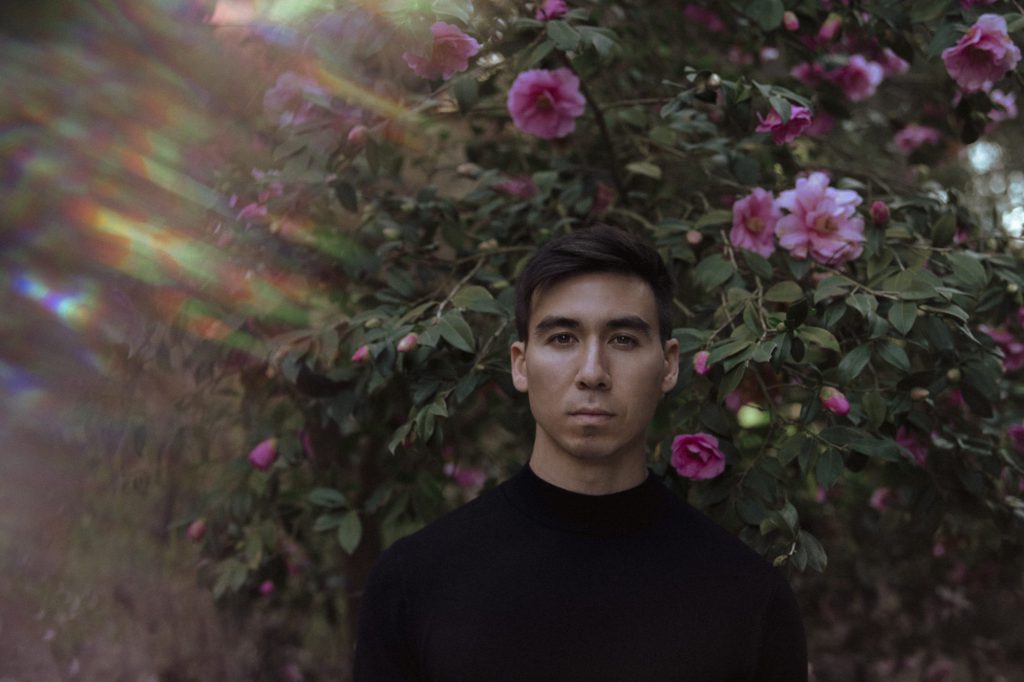
Well, also, I wouldn’t call it a problem, but part of the thing with music right now is that there’s just so much of it. It’s so crazy. You’ve obviously been in the scene long enough, so you’ve seen it go from like artists dropping like two, three, four tracks a year to like 15. Have you felt the pressure to release more music?
Yeah. It’s interesting. I think with the advent of Spotify, there is a certain pressure, or maybe a necessity, to be releasing music more often. And, yeah, I’m not necessarily sure it’s a good thing. I think, in most cases, at least, when I approach my own stuff, I only want to release music that I’m 100% happy with and believe in, and that I feel accurately reflects me musically.
Not to say that people aren’t doing that, but maybe there is this certain pressure to be constantly putting things out and in the public eye, that can have some negative creative effects. For example, if we’re simply putting something out for the sake of putting it out, versus releasing a piece of art because it’s fully formed and it’s the right time to put it out.
It’s difficult, because on my end when you can see all the releases, it becomes pretty clear as to who has been really pinpointing what exactly they want to do.
Yeah, there’s an element of that. I think now, there’s probably just more artists than ever actively putting out music and creating music and following the path of production. So naturally, there probably is more of an abundance of music being released. The supply is really high right now. I don’t think it’s a bad thing. But it does become a question of how does one stick out in a sea of quality music and art being released? When there’s so much volume, how do you break through the noise?
Yeah, and I don’t think that there’s one good real answer to that. Even as a blogger, I can only write so much and my team can only write so much. I think that the bigger thing is having a real core group of people who are passionate about your music. At the end of the day, they’re the ones that are going to be trumpeting your sound elsewhere.
Yeah, that’s what I’ve realized over the past year for sure. Let’s say 10 years ago, the artist’s model was very different. You’re separated from your audience, you don’t interact with them very much, you don’t really need to be super active on social media – you just put out your songs and you don’t even have to promote them that much.
But now for the most part, I think fans and followers of any artists want to really know who that person is. They want to fall in love with their personality and they want to know who the human is behind the art, what they are about, and why they do this.
So, since I know you’ve got to run soon, let’s end the conversation on a fun one. I know that you just did that mix for Insomniac with a little Daft Punk tribute. Looking back on their legacy, what is the track of theirs that blew you away?
The song of theirs that I have the closest memory and sentiments attached to is “One More Time,” hands down. I just have so many memories of hearing that song. Playing it in high school, while driving around blasting it, having dance parties, and wanting to show that song to everyone. Just the feeling that it would give me just putting it on and listening to it at a high volume. So that’s always been the one for me.
“One More Time” is such a good song. It’s one that I honestly think we’ll be hearing that song for the rest of our lives. Like there’s no doubt about it.
Yeah, for sure. They were one of my first entry points into electronic music. They were so important to me growing up and are probably a large part of the reason why I fell in love with electronic music.
Did you ever get to see them?
No, I never did. I was waiting for that Random Access Memories tour that never happened. [Laughs]
Follow Rinzen on Social Media:
Website | Facebook | Twitter | Instagram | SoundCloud



